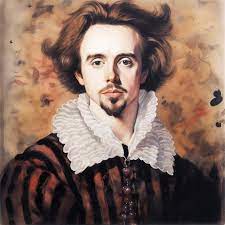Ishwar Chandra Vidyasagar Biography:
Ishwar Chandra Vidyasagar, born Ishwar Chandra Bandyopadhyay, was a towering figure in 19th-century India. A scholar, educator, and social reformer, he dedicated his life to fighting social injustices and advocating for social reforms, particularly focusing on women’s education and widow remarriage. His relentless efforts earned him the title “Vidyasagar,” meaning “Ocean of Knowledge,” a testament to his vast intellect and unwavering commitment to social change.
Ishwar Chandra Vidyasagar Nationality & Age:
Vidyasagar was born on September 26, 1820, in Birsingha village, West Bengal, India. He lived a full life, passing away on July 29, 1891, at the age of 70. Throughout his life, he remained deeply connected to his Indian roots and dedicated his work to uplifting the lives of his fellow countrymen.
Ishwar Chandra Vidyasagar Education and Schooling:
Vidyasagar displayed a thirst for knowledge from a young age. He enrolled in the Sanskrit College, Calcutta, at the age of nine, studying diligently for 12 years. His exceptional academic performance earned him the title “Vidyasagar” within the college. He further expanded his knowledge by learning English and qualifying in Sanskrit law, demonstrating his intellectual curiosity and pursuit of diverse perspectives.
Ishwar Chandra Vidyasagar Relationship and Personal Life:
Vidyasagar married Dinamayee Devi at the young age of 14, as was customary in his time. They had one son, Narayan Chandra Bandyopadhyay. While details about his personal life remain relatively private, his letters and writings reveal a deeply compassionate and sensitive individual who cherished his family.
Ishwar Chandra Vidyasagar Career Beginnings:
Vidyasagar’s brilliance paved the way for his early career success. At just 21, he became the Head Pandit of the Sanskrit department at Fort William College, Calcutta. Later, he served as the Principal of Sanskrit College, implementing progressive changes like opening the institution to students from lower castes and incorporating English language studies.
Ishwar Chandra Vidyasagar Career and Contributions:
Vidyasagar’s career transcended academic pursuits. He became a leading voice for social reform, passionately advocating for:
- Education for Women: He established schools for girls, authored Bengali textbooks in simplified language, and tirelessly argued for the importance of female literacy.
- Widow Remarriage: He spearheaded the fight against the cruel practice of sati, campaigning for the Widow Remarriage Act of 1856, which legalized widow remarriage in India.
- Caste System Reform: He opposed the rigid caste system, advocating for equal rights and opportunities for all, regardless of their caste.
Ishwar Chandra Vidyasagar Achievements and Awards:
Vidyasagar’s achievements resonated throughout India and beyond. He received numerous accolades, including:
- Companionship of the Order of the Indian Empire (CIE): Bestowed by the British Crown in recognition of his social reform efforts.
- Jagattarini Medal: Awarded by the Calcutta University for his contribution to Bengali literature.
- Enduring Legacy: He continues to be revered as a pioneer of social reform and education in India, remembered for his courage, compassion, and unwavering commitment to social justice.
Ishwar Chandra Vidyasagar Conclusion and Legacy:
Ishwar Chandra Vidyasagar’s life stands as a testament to the power of knowledge, compassion, and unwavering dedication to social change. His legacy continues to inspire generations in India and across the world, serving as a reminder that one person can make a significant difference in the fight for a just and equitable society.



